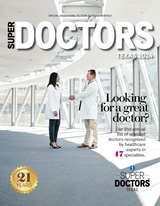Million Hearts' goal to prevent a million heart attacks and strokes in five years
Centers for Disease Control and Prevention
From CDC Online Newsroom (CDC)
October 27, 2011
In the time needed to read out loud the headline on this story, someone has died from a stroke. Every 6 seconds, someone in the world dies from stroke. The Centers for Disease Control and Prevention, in support of World Stroke Day, Oct. 29, 2011, asks Americans to take immediate action to reduce their risk for stroke.
Stroke is one of the leading causes of death in the United States. About 137,000 Americans die of stroke every year, about equivalent to the total population of Eugene, Ore., or Savannah, Ga.
A stroke, sometimes called a brain attack, occurs when a clot blocks the blood supply to the brain or when a blood vessel in the brain bursts. You can greatly reduce your risk for stroke through lifestyle changes and, in some cases, medication.
"Someone in the United States has a stroke every 40 seconds and while that is a statistic to some, it's a life abruptly changed for the person who suffered the stroke and the person's family," said CDC Director Thomas Frieden, M.D., M.P.H. "We can do so much more to prevent strokes and the new Million Hearts initiative offers opportunities for individuals, providers, communities, and businesses to apply tools we have readily available today to reduce strokes and heart attacks."
Among the actions available today to reduce stroke and heart attacks, Million Hearts seeks to improve clinical care by helping patients learn and follow their ABCS:
- Aspirin for people at risk
- Blood pressure control
- Cholesterol management
- Smoking cessation
Less than half of Americans who should be taking an aspirin a day are taking one; less than half of Americans with high blood pressure have it under control. Only 1 in 3 Americans with high cholesterol is effectively treated, and less than a quarter of Americans who smoke get help to quit when they see their doctor.
The risk for stroke varies
Anyone could have a stroke, but some populations are at higher risk than others. Compared to whites, African-Americans are at nearly twice the risk of having a first stroke. Hispanic Americans' risk falls between the two. Moreover, African-Americans and Hispanics are more likely to die following a stroke than are whites.
High blood pressure, a risk factor for stroke, affects 68 million adults in the United States and about half of adults with high blood pressure do not have their condition under control.
Sudden symptoms of stroke
Stroke can cause death or significant disability, such as paralysis, speech difficulties, and emotional problems. Some new treatments can reduce stroke damage if patients get medical care soon after symptoms begin. When a stroke happens, it is important to recognize the symptoms, call 9-1-1 right away, and get to a hospital quickly.
The sudden onset of any of the following symptoms require immediate medical attention:
- Sudden numbness or weakness of the face, arm or leg, especially on one side of the body
- Sudden confusion, trouble speaking or understanding
- Sudden trouble seeing in one or both eyes
- Sudden trouble walking, dizziness, loss of balance or coordination
- Sudden, severe headache with no known cause
More than 2 million heart attacks and strokes occur every year and treatment for these conditions and other vascular diseases account for approximately $1 of every $6 healthcare dollars.
Million Hearts is a new HHS national initiative to prevent 1 million heart attacks and strokes over the next five years. Million Hearts brings together communities, health systems, nonprofit organizations, federal agencies, and private-sector partners from across the country to fight heart disease and stroke.
To learn more about Million Hearts and how to get involved, go to http://millionhearts.hhs.gov/index.shtml.
To learn more about how to prevent stroke, go to: http://www.cdc.gov/stroke/.
CDC 24/7: Saving Lives. Protecting People. Saving Money Through Prevention.
###
U.S. DEPARTMENT OF HEALTH AND HUMAN SERVICES

